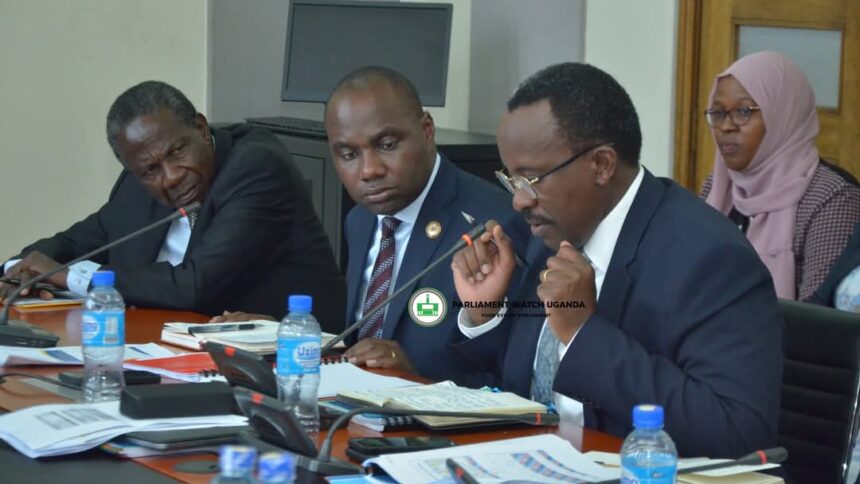The Uganda Revenue Authority (URA) has been tasked with collecting a record Shs36.71 trillion in the 2025/26 financial year, a sharp increase from the Shs31.369 trillion set for the current financial year (2024/25).
The new target is part of the government’s broader strategy to boost domestic revenue and reduce reliance on external borrowing.
The announcement was made by Henry Musasizi, Minister of State for Finance, while appearing before Parliament’s Finance Committee, where he led a team from URA to present the Authority’s 2025/26 Ministerial Policy Statement.
Musasizi was responding to concerns raised by Members of Parliament regarding discrepancies in revenue figures presented by URA, which appeared lower than what was captured in the Appropriation Bill 2025.
“The government is committed to increasing domestic revenue to finance our activities. The Shs36.71 trillion target is realistic, given the various tax policy and administrative measures being put in place,” Musasizi explained.
The government’s focus is on widening the tax base, enhancing compliance, and leveraging digital technology to seal revenue leakages. URA is expected to strengthen its tax enforcement efforts, expand the scope of taxable activities, and tighten controls on informal sector taxation, digital economy transactions, and real estate revenues.
Despite the ambitious target, economic analysts and lawmakers have raised concerns about URA’s ability to meet the projections, citing taxpayer fatigue, a struggling business environment, and enforcement challenges.
MPs cautioned that increased taxation could burden businesses and households that are still recovering from economic shocks, including high inflation and global economic uncertainties.
However, URA Commissioner General John Musinguzi assured Parliament that the Authority is implementing reforms that will improve revenue collection efficiency.
“The key focus will be on compliance, curbing smuggling, tax evasion, and leveraging technology to improve collection systems,” Musinguzi noted.
The new revenue target will require robust policy adjustments, public sensitization, and cooperation from businesses. The government is also looking at alternative revenue sources, including potential new taxes or adjustments to existing tax structures.
With 2025/26 marking a crucial financial year, all eyes are on URA to see whether it can meet the ambitious revenue goals set by the government.







